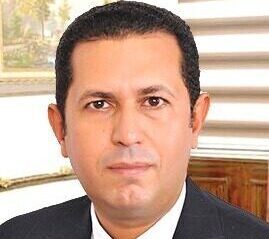Africa is rich in human and natural resources, which qualify the continent as a mainstay of global industry. It would be no exaggeration to say that Africa could be the land of promising opportunities in industry and agriculture that peace and security are achieved there.
Africa’s natural wealth has brought it under the eye of imperialist forces over the ages. Although so many countries in Africa gained independence from European colonialism in the 1950s and the 1960s, the impact of colonialism on Africa is still being felt in the 21st century.
The current unrest in the West African country of Niger laid bare the fact that the Russian-Ukrainian war has led to global political changes, including a growing Western attention to Africa.
On July 26, a group of military officers in Niger announced that they had overthrown and detained President Mohamed Bazoum, who took office two years ago in the country’s first peaceful transition to power since independence from France in 1960. This latest event demonstrates the growing rivalry between key world powers – US, Russia, China and France – to expand their influence in the African continent. We can say that Africa has turned into a battleground for proxy wars among world powers competing over its strategic location and natural resources, for which the African peoples who pay a heavy price.
The West African region has for decades been marginalised politically and economically. However, the accelerating global development of the last decade has earned the region a strategic value and an important position in the global balance of power, turning it an arena where world powers are struggling for influence. West Africa is considered the line separating between the Sahara and sub-Sahara, which contains Niger, Chad, Mali, Mauritania and Burkina Faso. France seeks to increase its influence in this region due to its geographical location on the Mediterranean, which is vital to the global balance of power. The region is witnessing a fierce international competition for investment in mining, oil, uranium and phosphates.
France, which maintains a military presence of 1,500 troops in its former colony Niger for combating terrorism, does not want to lose its last foothold in the region, particularly after it withdrew its troops from Mali and Burkina Faso. Around 1,100 US troops are also stationed in Niger, including a drone base that assists the Nigerian military counter insurgents affiliated to ISIS and Al-Qaeda.
Also, Russia has acquired and maintained clout in the region through its mercenary group Wagner, which props up several military juntas.
The coup in Niger has exposed a rising tide of anger against France and growing influence of Russia there as thousands of supporters of the junta that took over Niger marched through the streets of the capital, Niamey waving Russian flags, and denouncing the former colonial power, France.
International polarisation is a risk to security and stability in Africa. It is clear that the West, despite its strength, only works for its interests at the expense of Africa’s prosperity.
President Abdel Fattah El Sisi expressed his stance on this affair during the US-Africa Summit when he said Africa extends its hand for partnerships that serve mutual interests if the international community truly wants to help the continent. The President’s remarks were like a roadmap for Africa to regain its confidence shaken by international fluctuations.
Mohamed Fahmy is the editor-in-chief of The Egyptian Gazette and Egyptian Mail newspapers






Discussion about this post